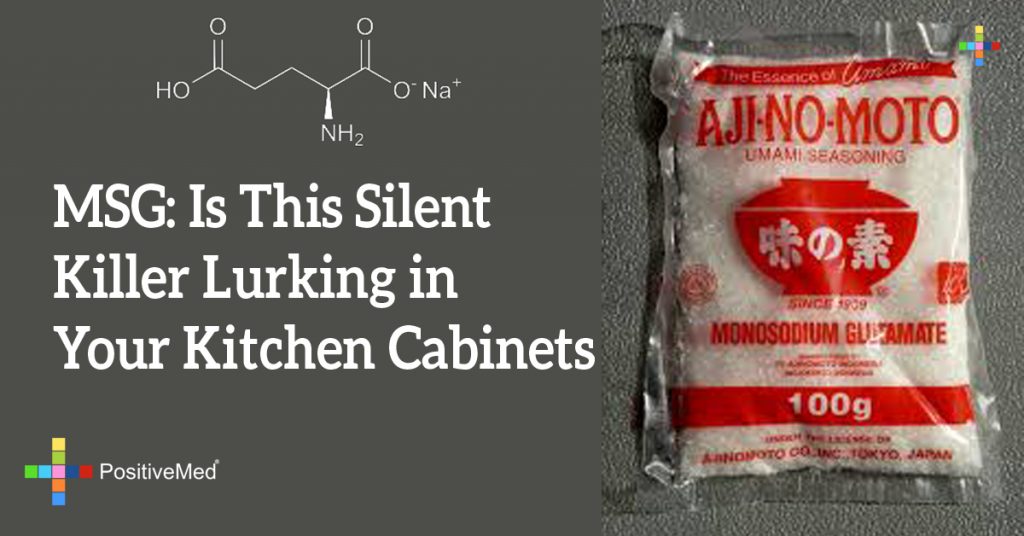
MSG: Is This Silent Killer Lurking in Your Kitchen Cabinets
Many people are unaware that MSG is one of the most common ingredients used in today’s food products. MSG, also known as monosodium glutamate, is used to enhance the flavor of certain foods that include soups, frozen dinners, meats, baby food, crackers, and salad dressings. Although it is commonly associated with Chinese food, the additive is a common ingredient in various types of products that are sold for an inexpensive way to liven up the flavor of cheap food and allow it to taste fresh.

Short and Long-Term Reactions Can Be Expected
Although many people experience different symptoms after consuming MSG, the most common include headaches, dizziness, nausea, weakness, chest pain, shortness of breath, sweating, heart flutters, and numbness on or near the mouth.
Long-term symptoms include asthma, seizures, brain damage, nervous disorders, hormonal issues, diabetes, and impaired vision.
MSG is Disguised as Other Names
Companies that use MSG in their food products are aware that consumers often avoid the ingredient, which is why they hide it in 40 other FDA-approved ingredients. This causes them to use other names for the item, which include yeast extract, gelatin, hydrolyzed protein, yeast nutrient, autolyzed yeast, textured protein, monopotassium glutamate, calcium caseinate, and monosodium glutamate. Overall, the ingredient is most commonly labeled as hydrolyzed vegetable protein.
MSG is Addictive
If you’re wondering why you get frequent cravings for noodles or tomato soup throughout the week, then it may be due to the MSG that was in the last meal that you had with the food product. The flavor enhancer makes it easy to crave the food after consumption and cause you to desire it again after a short period of time.
It Causes Obesity
According to a study that was performed on rats in the 1960s by Dr. John Olney, a neuroscientist, MSG causes obesity and an excess of fat to accumulate around the midsection and waist after consumption. The results also proved that MSG had a strong effect on thirst, hunger, body temperature, and sleep cycles in the body.
Glutamate is Found in Two Different Forms
Bound glutamate and free glutamate are the two forms of the ingredient with free glutamate the form that is able to act as a flavor enhancer. Natural foods also contain free glutamate, which develops when the foods begin to ripen and form flavor. Bound glutamate is linked to protein and often broken down to be made free.
Humans are Most Sensitive to MSG
Although the results of different studies on MSG vary, humans are still the most sensitive to the ingredient. Humans have glutamate receptors on every organ, making us 20 times more sensitive than monkeys and five times more sensitive than rats. MSG is even more harmful on babies in and outside of the womb, which can impair the biological development of the child for long-term effects.






